1/ Covid (@UCSF) Chronicles, Day 191
Wonderful @UCSF medicine grand rounds today, focused on San Francisco’s remarkable Covid response. It’s here: tinyurl.com/y3uhy6tz.
As I said on Monday, if U.S. had had SF’s Covid mortality rate, we'd be at 36,101 deaths, not 200,000.
Wonderful @UCSF medicine grand rounds today, focused on San Francisco’s remarkable Covid response. It’s here: tinyurl.com/y3uhy6tz.
As I said on Monday, if U.S. had had SF’s Covid mortality rate, we'd be at 36,101 deaths, not 200,000.
2/ San Francisco continue to do quite well, even as U.S. (particularly Midwest; a bit in South & West, Fig on L) begins to surge. @UCSFHospitals, only 15 Covid pts, 5 on vents (Fig R). Test positivity 3.3% in pts w/ symptoms, 0.53% in those without – both lowest # 's since June. 

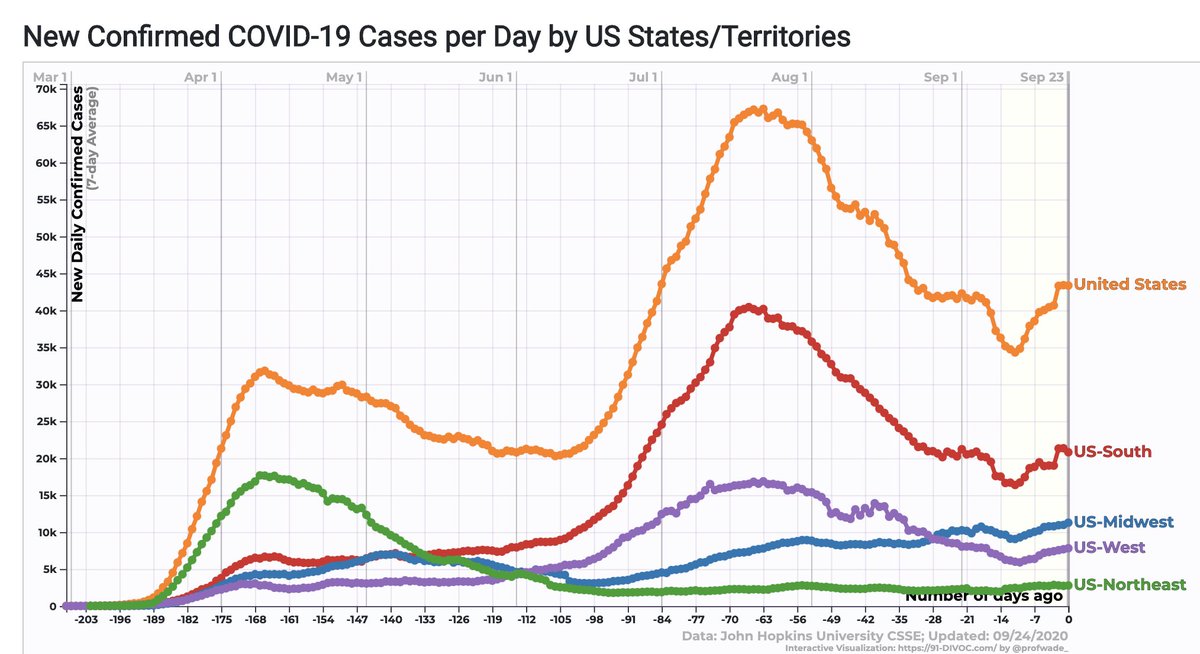
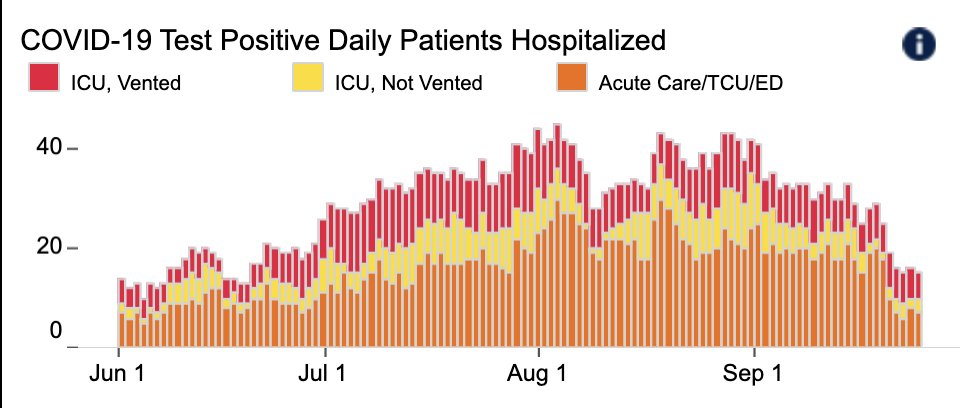
3/ San Francisco: still under 100 (99) deaths since the start; remarkable. 64 cases/day (Fig on L). Hospitalizations also at 64 – both numbers not as good as they were in March-June but about half of the July peak (Fig L).) Test positivity rate: 2.1%, the lowest % since June. 

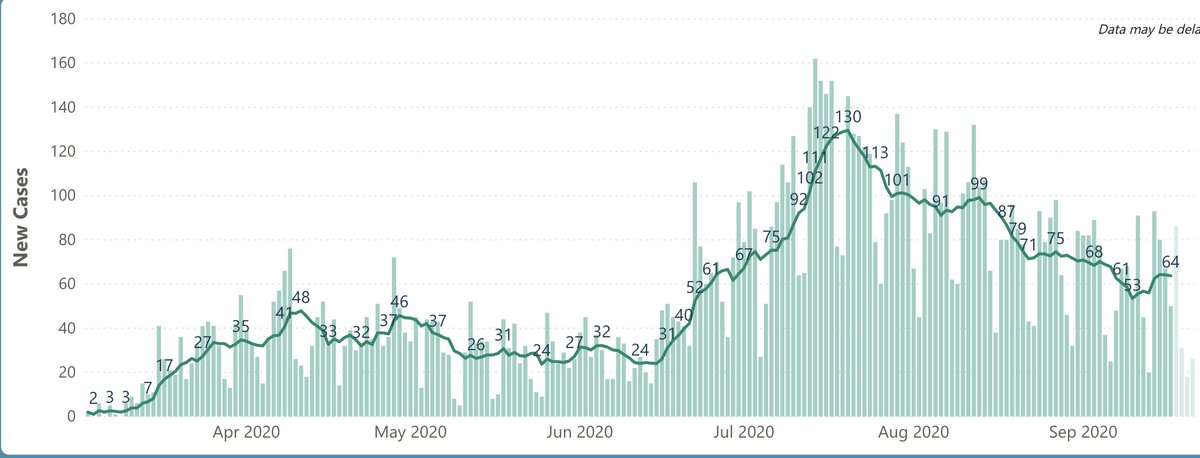
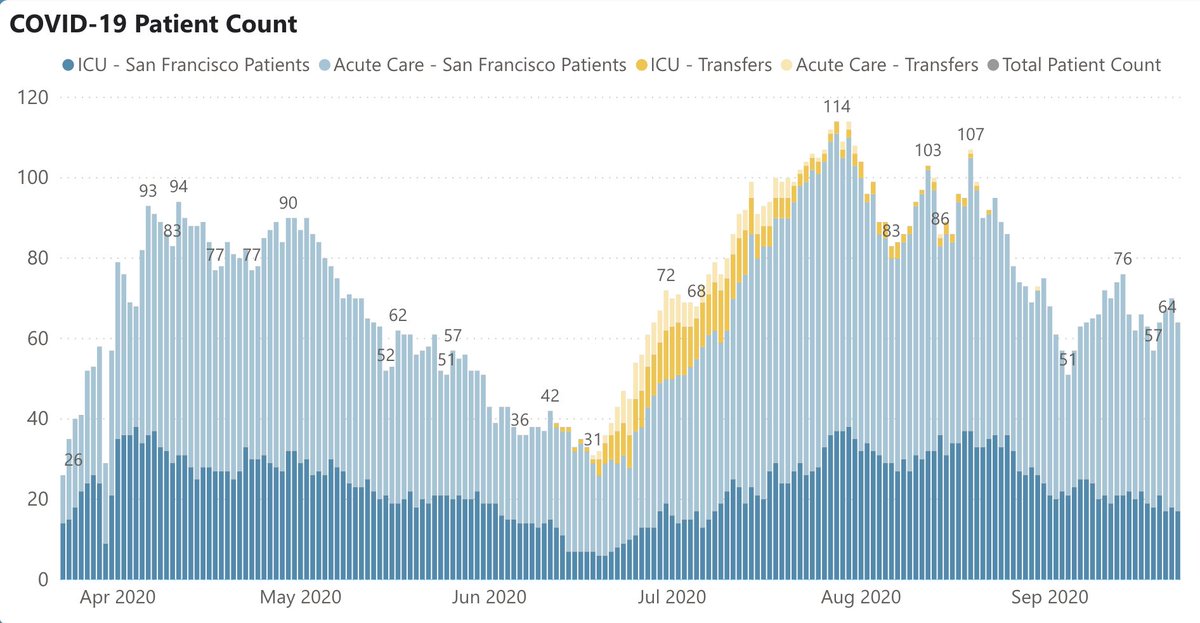
4/ On to Grand Rounds:
@ 3:30: @UCSF Chancellor Sam Hawgood introduced Mayor @LondonBreed. “San Francisco is fortunate to have a mayor who believes in what science tells us… And we’re very fortunate to have a mayor who strongly believes in the role of public health.”
@ 3:30: @UCSF Chancellor Sam Hawgood introduced Mayor @LondonBreed. “San Francisco is fortunate to have a mayor who believes in what science tells us… And we’re very fortunate to have a mayor who strongly believes in the role of public health.”
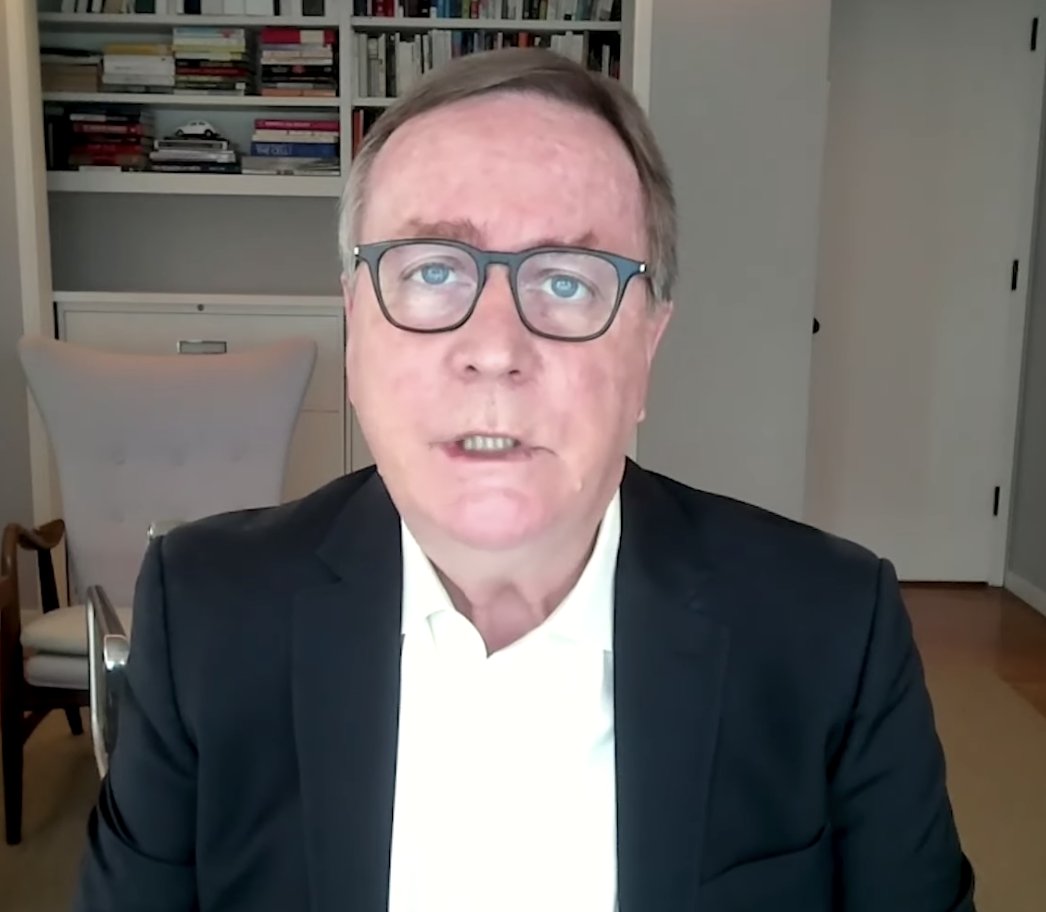
5/ @ 8:00: Mayor @LondonBreed: “We have seen how our phenomenal medical professionals have risen to the occasion, and the direct impact of @UCSF as a leading research institution and partner…” through testing, contact tracing, clinical care, and by increasing its bed capacity. 
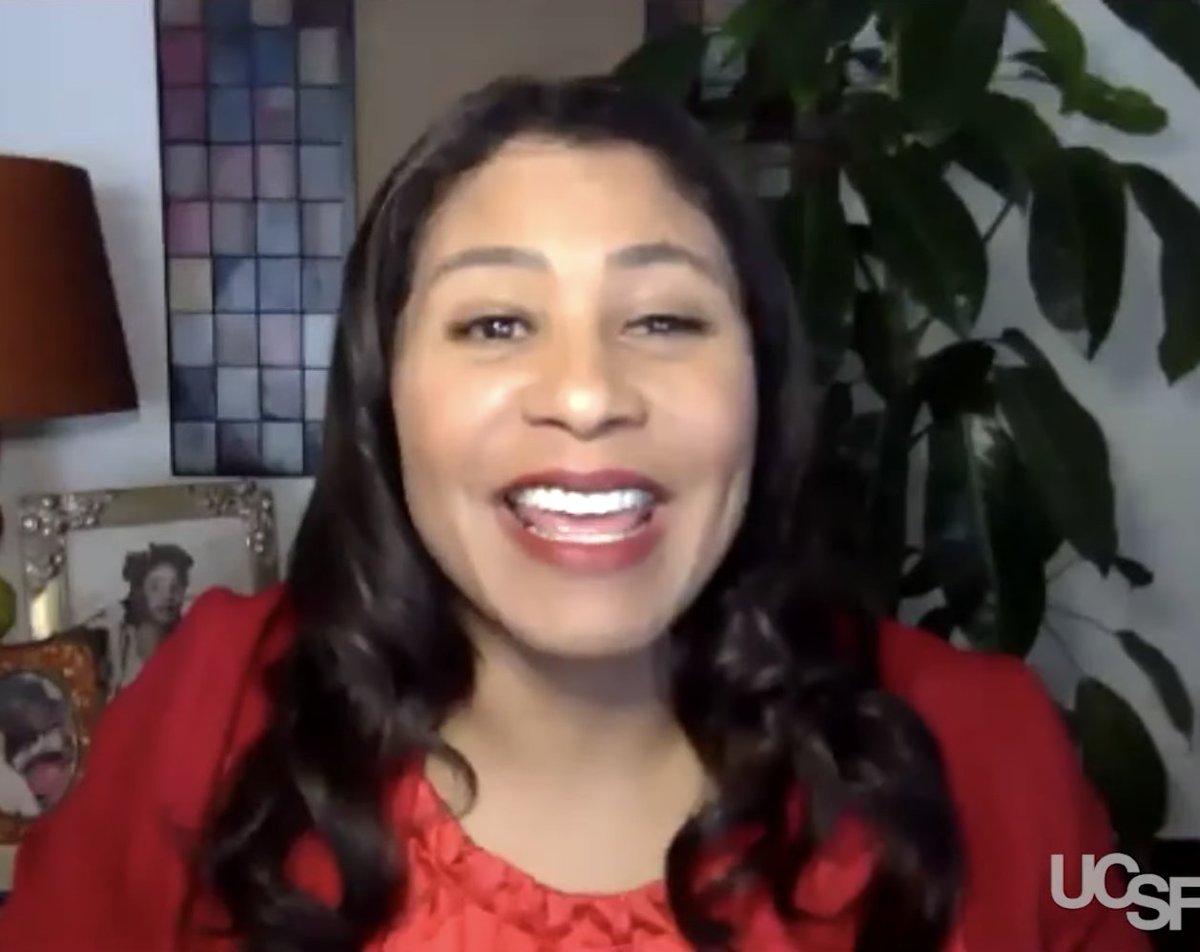
6/ More from Mayor @ 10:30: “This virus… targets disparities in our society. It preys on people who have poor health due to historical inequities…, people who live in crowded conditions…,people whose immigration status makes them weary of speaking to public health officials…”
7/ @ 18:00: I asked the Mayor what led her to her early shelter-in-place action. “I remember the day [Colfax & Aragon] came into my office…" Despite great hospitals, “w/ a surge, we couldn't handle it, people will be turned away at the door, & people will die at alarming rates.”
8/ @ 21:00: I asked Breed what about her background explained her courage in shutting down early. “I’m honored & blessed & surprised that I’m mayor. All I can think about is, ‘What would I want my mayor to do… We’ve got to do a press conference, we have to let the people know.” 

9/ @ 22:30: “It was hard, because I knew with the hotels & tourism & the birthday parties & the weddings… people had plans…” But, “I grew up in a community where… I lost a lot of friends to gun violence. I kept thinking, ‘How could we have prevented that from happening?’”
10/ @ 25:00: One key to SF’s success was communication, “Not just communicating from the perspective of a doctor… but how do you communicate from the perspective of ‘how they get it.’” Came up with creative solutions, including embedding an “equity team” in emergency ops center.
11/ @ 26:30: Brought on @SF_DPH head Grant Colfax & health lead Tomas Aragon. Mayor told story about walking into her neighborhood grocery, seeing lots of unmasked people. “I called Dr. Colfax & said, ‘get a health person over there now… we need to shut the grocery store down.’” 
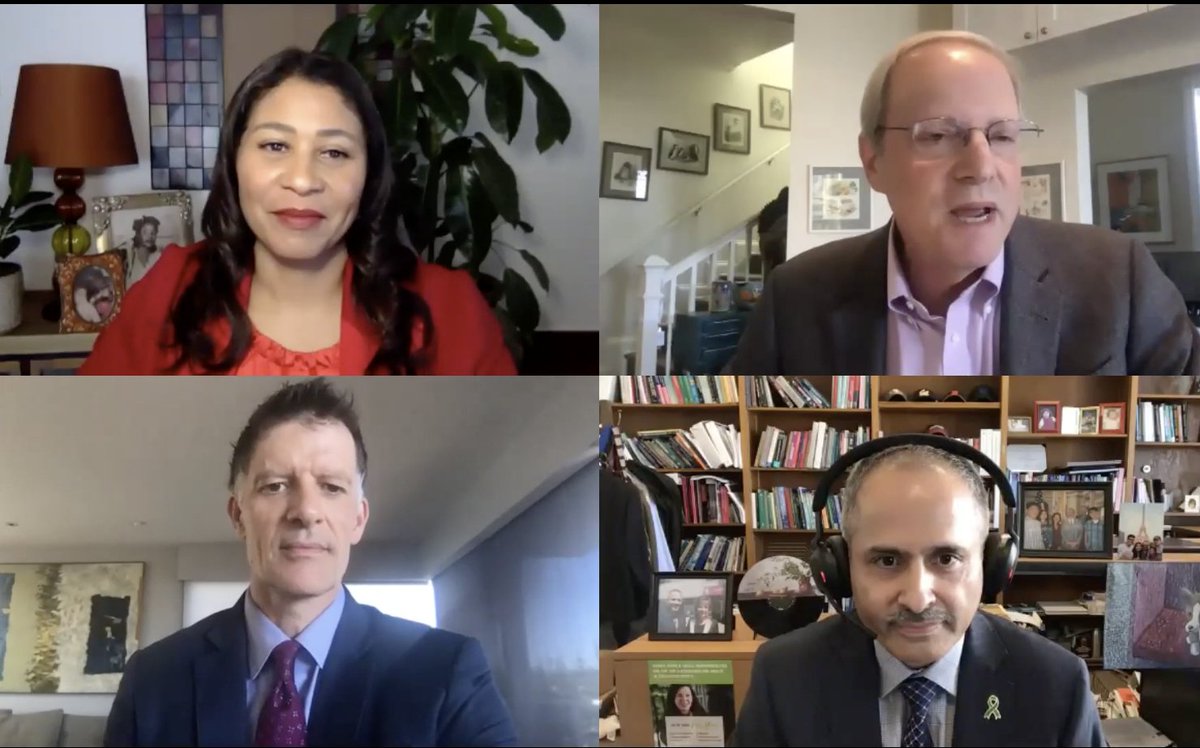
12/ @ 28:00: Mayor Breed: “We did all these great things, but the disparities – particularly in the Latino community – didn’t change. What that means is that we've not done enough.” Today, she announced a big new investment in testing, contact tracing, food security, & outreach.
13: @ 31:00, @SF_DPH chief Grant Colfax describes March meetings – says that HIV taught him importance of early action. He looked at the numbers, and at the international situation: “There wasn’t a jurisdiction that appeared to have overreacted… the virus was always ahead.”
14/ @ 35:00: I asked Tomas re: decisions he had to make in May (vs March). “It’s easy to shut down, it’s hard to open up.” To open up, “it’s about the economy, jobs – it’s about the complexity of society that we didn’t understand.” Needed to spend more time w/ business community.
15/ @ 38:30: Fascinating discussion with Paul Volberding re: early days of HIV. Things "seemed to be moving fast," but in retrospect it was “glacially slow” (no preprints, no social media). Tough decision to close bathhouses in SF seemed similar to decisions today about schools. 
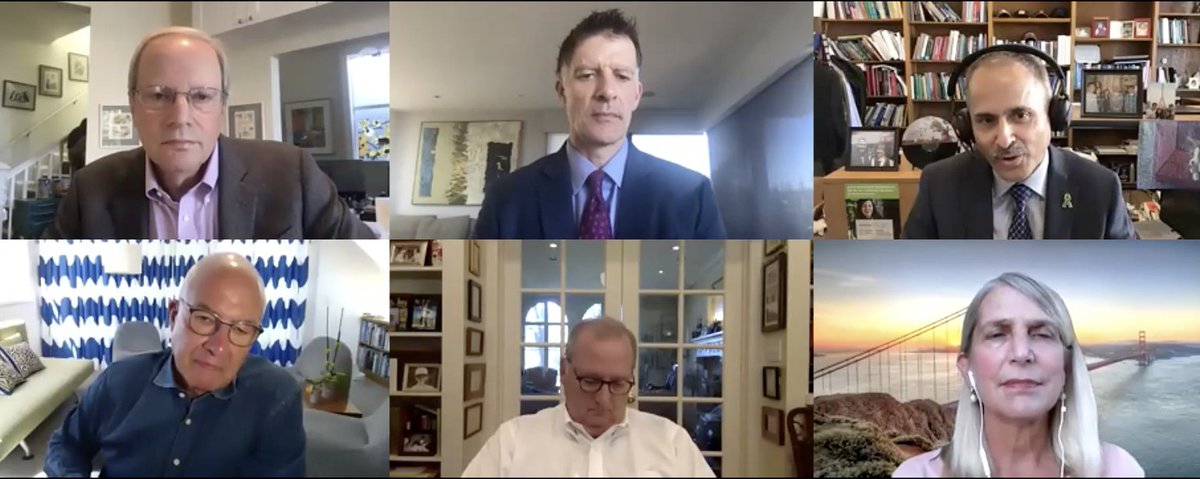
16/ @ 41:00: I asked Colfax re: some dire predictions he made in June when surge began tinyurl.com/yyvt8qmj. “It’s exactly that tension: making sure people understand the possibilities, while working against prevention fatigue.” But the numbers/concern he described were real.
17/ @ 47:00: George Rutherford’s lesson from HIV and Covid: “…To realize how good the @SF_DPH is.” The health department produces lots of academic output, and enjoys a very strong relationship with @UCSF: "Everybody picks up the phone when you need help."
18/ @ 48:45: Diane Havlir, “We learned in AIDS that the trifecta of the public health dept. leadership, academic centers, & the community all working together – that’s the magical formula.” Not everybody agrees with each other all the time, but “everybody needs to have a voice.”
19/ @ 53:30: Re: U.S. response. Tomas: “(Federal) govt. is the only entity that has the ability to coordinate activity across all sectors.” While early on he “really paid attention” to daily calls w/ @CDCgov, now not so much. Ditto CDC recs: double check everything from CDC. Sad.
20/ @ 56:00: I asked Tomas if he’s considered fines for folks who don’t follow rules (eg, masks). Answer: no (though yes for businesses that don’t comply). “We’ve implemented a lot of punitive restrictions – shutting down the economy, schools – people are really stressed out….”
21/ @ 57:00: I asked about schools. Tomas: “They have become my True North, because in order to open up schools, you have to get community transmission down....It’s an equity question." The city is now doing site visits of every school. “A very concrete way of being anti-racist.”
22/ @ 1:02:00: Why has SF’s mortality rate been so low? Havlir: thinks it’s quality of care, because we weren’t overwhelmed, had time to apply evidence. Also, no big outbreaks in SF nursing homes: we “jumped on” outbreak at Laguna Honda – remarkably, no patient deaths there.
23/ @ 1:06:00: I asked Volberding re: nat'l politics of HIV vs now. Although Reagan didn’t utter word “AIDS” until 6 yrs into HIV, “things were happening, grants were funded” & “CDC was pure.” Now, president talks about Covid all the time, but the response is dysfunctional.
24/ A “Wow, am I old” moment for me: @ 1:14:30, Volberding observes that when HIV first hit (1981), the polio epidemic had been ~40 yrs earlier. And we never thought about it.
Now, HIV was 40 yrs ago. “We forget too soon…the lessons from each epidemic are remarkably similar.”
Now, HIV was 40 yrs ago. “We forget too soon…the lessons from each epidemic are remarkably similar.”
25/ A great session, again here: tinyurl.com/y3uhy6tz Well worth watching. Makes me proud to live in SF and work @UCSF.
Next Thursday, we'll do a non-Covid grand rounds. Back with a Covid update on Thursday October 8th. I'll keep tweeting in between.
Until then, stay safe.
Next Thursday, we'll do a non-Covid grand rounds. Back with a Covid update on Thursday October 8th. I'll keep tweeting in between.
Until then, stay safe.
• • •
Missing some Tweet in this thread? You can try to
force a refresh






